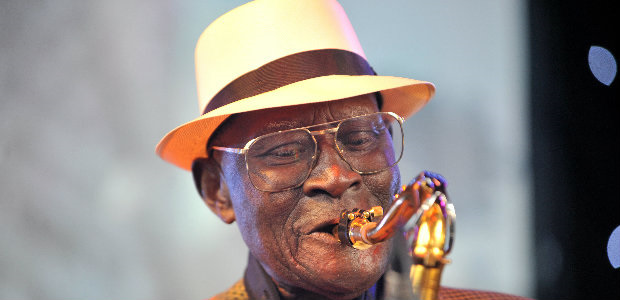
In 1949, the Jamaican tenor saxophonist Andy Hamilton, faced a dilemma. As a musician he had reached the top, entertaining Noël Coward and friends at the Titchfield hotel in Port Antonio, then hired as a bandleader by the actor Errol Flynn for parties on his yacht, but his personal life was in crisis and he needed to escape. He joined others of his generation by moving to Britain, where he became a celebrated jazzman and prominent figure in the fight for Caribbean self-determination.
He left without warning, hiding himself on board a banana boat and arrived in England as a stowaway. After serving the mandatory 14-day sentence for this misdemeanour, he went in search of his countrymen. He was disappointed at what he found: some living in wretched conditions while others resorted to nefarious means for survival. London was not for him, he decided, and he headed to Birmingham where industry was hungry for labour.
He found factory work and played there with Jamaicans including the trumpeter Dizzy Reece and the saxophonist Sam Walker, but when they left for London, he was treated with disdain and indifference on attempting to make contact with the wider Birmingham jazz community. Refused permission to play at one session, he went home, sat down and wept. He put his saxophone under the bed and forgot about music.
Then, at the Good Companions, a local pub where, under the rubric of the Black and White Club, inter-racial social sessions were organised by a South African doctor, he formed a lasting friendship with the Jamaican RAF veteran and pianist Ron Daley (stage-name Sam Brown). By 1953 they were playing together in the West Indian Modernists.
At the Vittoria restaurant in Hockley, local women attended their events and both men met their wives. Hamilton, who would have 10 children with Mary, a nurse, took credit for initiating many mixed marriages in those difficult times by providing the atmosphere in which such relationships could flourish. For this, he became the target of racists and the recipient of hate-mail, and lost his teeth when attacked on the bandstand.
He held firm, helping to create the foundation for the new multicultural Birmingham. In 1990 he was granted the freedom of the city in recognition of his work in community relations and, in 1996, received an honorary MA from the University of Birmingham.
Born at Port Maria on Jamaica’s north coast, he was the only child of Michael Hamilton, a butcher and farmer, and his wife, Miller. He formed a singing group in childhood, his first instrument, in the boy scouts, being a cornet. He played the trombone and tuba with a Salvation Army band, then his father helped buy him a tenor saxophone. His models were the American jazz musicians he heard on the radio.
In 1944 he travelled to the US as a migrant worker, like many Jamaicans. He found musical work in upstate New York too and also heard and met Louis Jordan and Duke Ellington. Among the records he took back to Jamaica were Body and Soul and It’s the Talk of the Town by Coleman Hawkins: “He was the one to baptise me.”
I was discussing Hamilton with a neighbour in the 1980s, and she confirmed he was first choice for all Birmingham West Indian functions. He put on his own dances and educated youngsters through his big band and workshops, while his weekly pub sessions featured leading American jazz stars, as well as locals such as Gary Crosby, Dudu Pukwana and Nana Tsiboe. And yet he remained puzzlingly unknown outside the Midlands.
I interviewed him for a national newspaper in 1990, and recommended his band for the Soho jazz festival in London. A well received recording for World Circuit Records resulted, pairing him with his musician sons Marc and Graeme, and fellow saxophonists including David Murray and Andy Sheppard. He had a new lease of life, travelled widely, appeared on television and was the subject of articles and student projects.
At his best, Hamilton’s playing demonstrated great warmth and originality. The influence of the early saxophone masters was present, but he moved with the times and his later work demonstrated an intriguing mix of elements of both Hawkins and John Coltrane. The oblique Caribbean phrasing that owes its debt to the rhythms of the mento and calypso was always there, shaping both his In 1996 Hamilton was awarded an Honorary Master of Arts degree by Birmingham University, in 1999 he received a Millennium Fellowship for his work in Community Education (which has involved the establishment of The Ladywood Community School of Music.
He was appointed Member of the Order of the British Empire (MBE) in the 2008 New Year Honours.
On 30 January 2008, a few weeks before his 90th birthday, he was made an Honorary Fellow of the Birmingham Conservatoire during a ceremony at Symphony Hall.
Andy Hamilton continued to play, teach and promote music even as he approached his 94th birthday. He died peacefully on 3 June 2012.
